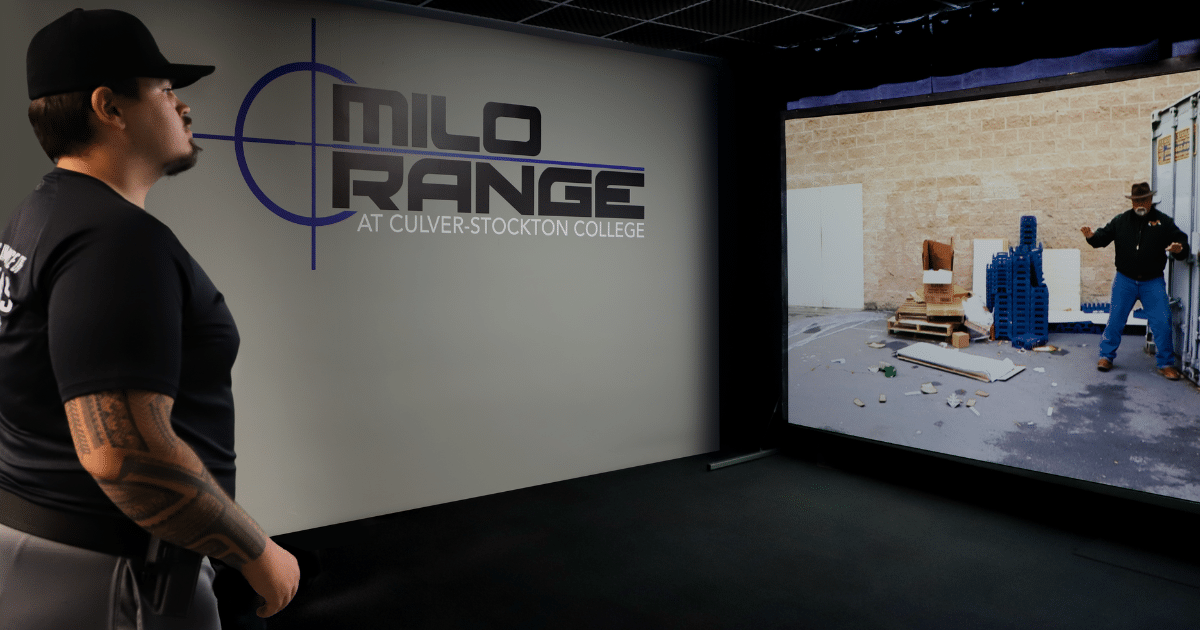
Culver-Stockton College (C-SC), a private liberal arts college offering 80 major and minor tracks, has announced the addition of a simulation training center on campus that focuses on de-escalation and conflict resolution techniques that better prepare people in critical situations.
C-SC’s Critical Response Simulation Lab (CRSL) is a live, virtual, and responsive simulation using advanced technology such as artificial intelligence and machine learning to train in scenarios tailored to diverse needs.
Seth McBride, who serves as Chair of the Criminal Justice Department, as well as a former corporate investigator with Boeing, Co. and former detective with the Hannibal Police Department, said the simulation lab is used to train students, law enforcement, public servants, church workers, business professionals, and community leaders. He noted the software is customizable for each group of trainees.
“The simulator embedded in the Critical Response Simulation Lab is MILO. MILO stands for Multiple Interactive Learning Objectives. The software uses more than 950 different scenarios in the areas of de-escalation, conflict resolution, and use of force decision-making. MILO is used by police agencies across the country for continuous training in these same areas,” said McBride. “I am proud that Culver-Stockton College is one of few private liberal arts colleges to have a simulator lab with this technology in the United States.”
The lab, where training is facilitated by McBride and Sgt. Devon Willis of the Lewis County Sheriff’s Office, is housed in the lower level of the Johann Library on the campus and was made possible by a generous lead donation from C-SC alumna and trustee emerita Leslie Kelsay ’73, along with other gifts from alumni and friends.
C-SC officials will hold the Kelsay Criminal Justice Lab dedication ceremony at 6:00 p.m. on Thursday, Oct. 26, for campus officials, trustees, students, and media personnel. Speakers for the event include McBride, Willis, and Kelsay, as well as David Parrish, Lewis County sheriff; Dr. Lauren B. Schellenberger, C-SC president; and Tara Mackey ’21, an officer with the Hannibal Police Department.
Mackey, a graduate of C-SC’s criminal justice program, said the simulation lab is a valuable resource to all who experience the training.
“There are so many different aspects of policing that training on MILO can cover. Human interaction and communication are at the top of that list. The experiences I got from the simulation have been extremely helpful in my overall law enforcement training. The simulation provides the closest possible thing to real-world experiences,” she said. “It is one thing to simply be exposed to these simulations, but I believe the true value of the MILO lab is the educational conversations and learning points that it creates for students and professors to explore.”
Contact the Marketing & Public Relations Office, at pr@culver.edu or 573-288-6000 ext. 6728 for more information.
NOTE: A number that appears immediately after a person’s name (i.e. Jane Doe ’18) is a reference to the year that person earned their bachelor’s degree from Culver-Stockton.
